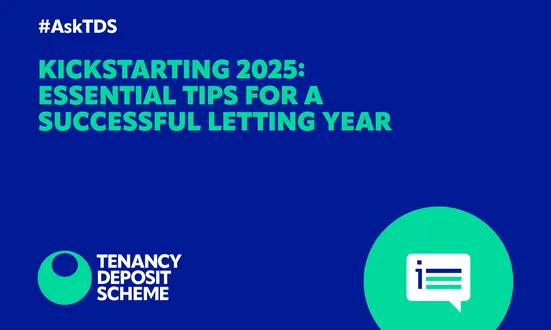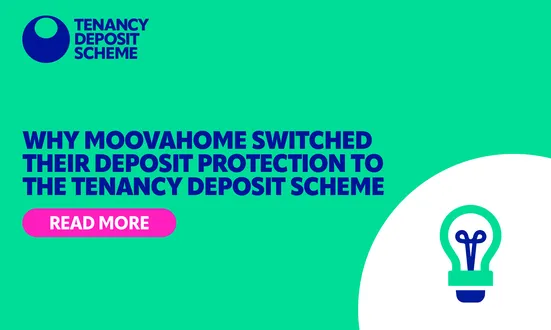House hunting for students is now well underway. If you have spoken to housing advisers, they will have reminded you that your tenancy deposit must be protected within 30 days of you paying it.
However, before you pay a tenancy deposit you may have to pay a holding deposit. These are two completely different things and can get confused. What’s the difference and why does it matter?
What’s a holding deposit?
A holding deposit is likely to be the first payment you make.
By paying a holding deposit you are confirming your intention to rent and your landlord is confirming their intention to let – it ‘holds’ the property for you until you sign a tenancy agreement. If you pull out you will lose this deposit, and if the landlord pulls out you should receive the deposit back.
Holding deposits do not have to be protected in a tenancy deposit protection scheme.
So you must be careful – make sure that the property is for you before paying a holding deposit and find out what credit or referencing checks you need to pass. If the tenancy doesn’t go ahead because you fail these checks you will lose the holding deposit.
Check out your letting agent first before handing over any money to make sure they are reputable, and try to use agents who are professionally accredited through bodies such as Propertymark, NRLA or RICS – look for the sticker in the window.
What’s a tenancy deposit?
A tenancy deposit is paid to the landlord assecurity against tenants breaking the terms in the tenancy agreement, e.g. by causing damage or not paying your rent.The tenancy deposit must be protected in a government-approved scheme within 30 days of the landlord receiving it, and you must receive prescribed information telling you how your deposit is protected.
As of 1st June 2019, landlords in England can only ask for a deposit worth up to 5 weeks’ rent (if the annual rent is less than £50,000). Normally, this falls within the range of 4 to 5 weeks’ rent. If you adhere to all the terms of the tenancy agreement and everything goes smoothly, you should receive your full deposit back when you move out. However, if there are any issues, the landlord can use the deposit money to cover the costs of fixing things, which may result in a deduction from your deposit.
When a holding deposit becomes a tenancy deposit
When all of the necessary checks are complete and you are ready to go ahead, rather than returning the holding deposit to you it is common for it to be kept and used to cover other fees, or for it to be ‘converted’ into your tenancy deposit.
If it is going to be used for your tenancy deposit, the moment it ‘converts’ is when you sign the tenancy agreement.
This is important. Your landlord is considered to have ‘received’ the tenancy deposit at that point and so that is when the 30-day limit to protect it begins.
But again, you must be clear if this is what’s happening to your holding deposit so get written confirmation of how the money is being used if you are not getting it back.
If your holding deposit is kept unfairly
Your holding deposit does not need to be protected. Sadly this means that if you lose your holding deposit unfairly we are unable to help. The first place to go for advice is your university or student union housing advisor.
Otherwise, use one of the following resources to seek help:
- Trading Standards: Find your closest Trading Standards office here –https://www.tradingstandards.gov.uk/advice/index.cfm
- Shelter – this is a directory for local housing advice in your area – https://england.shelter.org.uk/get_advice/advice_services_directory
- Citizens Advice Bureaux offer free advice on all legal issues, including housing. Find your nearest office here –https://www.citizensadvice.org.uk/
In the meantime, take a look at this blog with tips for tenants on how not to lose your tenancy deposit.
About TDS
The Tenancy Deposit Scheme is part of The Dispute Service (TDS), the largest tenancy deposit protection (by value) and resolution service provider in the UK making life easier for tens of thousands of agents, landlords, developers, and millions of tenants and homebuyers.
Our award-winning customer service is highly rated on both Trustpilot and Google, and we’re backed by the NRLA, Propertymark and RICS.
We provide quick and hassle-free online deposit protection, free guides and information in our online help centre, free dispute resolution and free mid-tenancy mediation for tenants and landlords.
Our free tenant lifecycle app, tlyfe, makes renting smarter. Manage your TDS deposit, get pre-qualified, build your credit ratings, and more.
The views expressed in this content are solely those of the author alone and do not necessarily represent the views of TDS, its officers, or employees. To read more on TDS views, visit our Policies & Procedures webpage.

Other news stories


